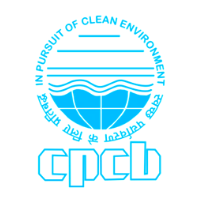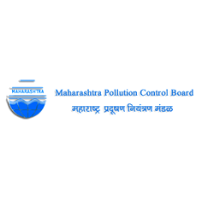What is Pollution License?
A Pollution License, also known as an environmental permit or pollution control license, is a legal document issued by a government authority or regulatory agency to regulate and control pollution from industrial or commercial activities. It is a requirement for businesses and organizations that have the potential to release pollutants into the environment, such as air, water, or land.
The purpose of a pollution license is to ensure that these activities are conducted in a manner that minimizes their impact on the environment and human health. The license typically sets out specific conditions and limits on the type and amount of pollutants that can be emitted or discharged. These conditions may include the use of pollution control equipment, regular monitoring and reporting of emissions, and compliance with specific environmental standards and regulations.
Type of Pollution Licenses
Different types of Pollution Licenses exist, depending on the nature of the industry and the potential environmental impacts. Some common types of Pollution Licenses include:
- Air Pollution License: This license is required for industries that release emissions into the air, such as factories, power plants, and refineries. It ensures that these establishments adhere to air quality standards and implement necessary pollution control measures.
- Water Pollution License: Industries involved in activities that generate wastewater or discharge pollutants into water bodies need a Water Pollution License. This license regulates the treatment and disposal of wastewater to prevent contamination of rivers, lakes, and groundwater.
- Hazardous Waste License: Businesses that produce, store, transport, or dispose of hazardous waste substances must obtain a Hazardous Waste License. This license ensures proper handling, storage, and disposal of hazardous materials, minimizing the risk of environmental contamination.
- Noise Pollution License: Certain industries or commercial establishments that generate excessive noise levels require a Noise Pollution License. This license sets limits on noise emissions to protect the well-being of nearby communities and maintain noise quality standards.
- Solid Waste Management License: Entities involved in waste collection, segregation, recycling, or disposal need a Solid Waste Management License. This license ensures compliance with proper waste management practices, reducing the environmental impact of solid waste.
Check out the Pollution License Video
What are the Benefits of a Pollution License?
Legal Compliance
A Pollution License ensures that businesses operate within the legal framework established by environmental regulations.
Environmental Protection
The primary purpose of a Pollution License is to protect the environment from harmful industrial activities.
Community Health and Safety
Industrial activities have the potential to impact the health and safety of nearby communities.
Resource Conservation
Pollution Licenses often encourage businesses to adopt sustainable practices that promote resource conservation.
Reputation and Stakeholder Confidence
Having a valid Pollution License enhances a company's reputation and credibility. It demonstrates a commitment to environmental responsibility and sustainability.
Competitive Advantage
In an era of growing environmental awareness, businesses with Pollution Licenses gain a competitive advantage in the market.
Why Pollution License is Required?
A Pollution License is required for the following reasons:
- Environmental Protection: It ensures that businesses operate within specified environmental guidelines, minimizing harm to ecosystems and natural resources.
- Legal Compliance: It ensures businesses comply with environmental laws and regulations, avoiding penalties and legal consequences.
- Health and Safety: It protects the health and safety of communities by controlling and mitigating pollution-related risks.
- Resource Conservation: It promotes sustainable practices, such as efficient resource utilization and waste management.
- Public Accountability: It holds businesses accountable for their environmental impact, fostering transparency and responsibility.
- Community Engagement: It encourages businesses to engage with local communities, addressing concerns and ensuring sustainable coexistence.
- Market Reputation: It enhances the reputation of businesses as environmentally conscious entities, attracting customers, investors, and stakeholders.
Who can get Pollution License?
Chemical waste
Smoke Emissions
Fly Ashes
Medical Waste
Electrical Industry
Automotive Industry
Shipbuilding
Pharmaceuticals
Nuclear Fuel
Mining & Quarrying
Machinery
Construction
Document Required for Pollution License
Role of Shamkris and Process of Pollution License
Shamkris adopts a results-oriented approach to compliance with mandatory licence requirements in the organization. A simple and guidance methodology help organisation to achieve licence in a timely manner and cost-effective. Shamkris support 100% in advisory, Guidance, Compliance with respect to license requirements to obtain approval.
The License process described below:
- Advisory for the document required
- Preparation of documents as per application & list of documents.
- Application File
- Inspection by the department if required
- Liason department
- Yearly Compliance if Applicable
- Renewal when due
Who can issue the Pollution License?
FAQ
How to Apply for A Pollution License:
1. Obtain NOC/CTE.2. Submit an application with site details, plans for pollution control, and industry registration certificates to the state pollution control board’s regional officer.
3. You may submit your application online by logging onto your State’s pollution control board’s website.


